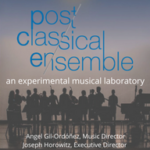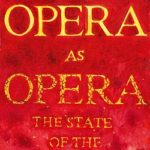Back in the 1990s, Harvey Lichtenstein – who recreated the Brooklyn Academy of Music – invited me to lunch and asked me if I wanted to run an orchestra. Harvey had just read my notorious Jeremiad Understanding Toscanini: How He Became an American Culture-God and Helped Create a New Audience for Old Music. That was published by Knopf when a book about classical music might … [Read more...] about THE FUTURE OF ORCHESTRAS — Part Six: What’s an Orchestra For?
On Rescuing a “Dead Art Form” — Take Two
It seems to me pretty obvious that nowadays it’s far easier to stage a successful Hamlet or Three Sisters than a successful Aida or Siegfried. And one reason is equally obvious: finding an actor to play Hamlet or Masha is no problem; finding a dramatic soprano for Aida or a Heldentenor for Siegfried is difficult to impossible. At the heart of Conrad L. Osborne’s … [Read more...] about On Rescuing a “Dead Art Form” — Take Two
On Rescuing a “Dead Art Form” — A Landmark Book on Opera in Performance
This weekend's "Wall Street Journal" includes my review of Conrad L. Osborne's new mega-book "Opera as Opera" -- the most important English-language treatment of opera in performance ever written: During the 1960s, ’70s and ’80s, when classical music was a lot more robust than nowadays, High Fidelity was the American magazine of choice for lay connoisseurs and not a few … [Read more...] about On Rescuing a “Dead Art Form” — A Landmark Book on Opera in Performance
Bernstein at Brevard — Take Two: The Artist and Politics
The Bernstein Centenary celebration at the Brevard Music Festival last month was multi-faceted. I was invited to explore the Bernstein story for a week with Brevard’s exceptional high school orchestra (the festival also hosts college and professional ensembles). The result was the multi-media “Bernstein the Educator” program that I described in my previous blog. I was also … [Read more...] about Bernstein at Brevard — Take Two: The Artist and Politics
Bernstein the Educator
Museums curate the past. They help us to shape and populate our impressions of history. Orchestras do not curate the past. A typical symphonic program (alas) begins with the selection of a soloist. The resulting programs are eclectic: a potpourri. During his historic music directorship of the New York Philharmonic, Leonard Bernstein was the rare conductor for whom … [Read more...] about Bernstein the Educator




